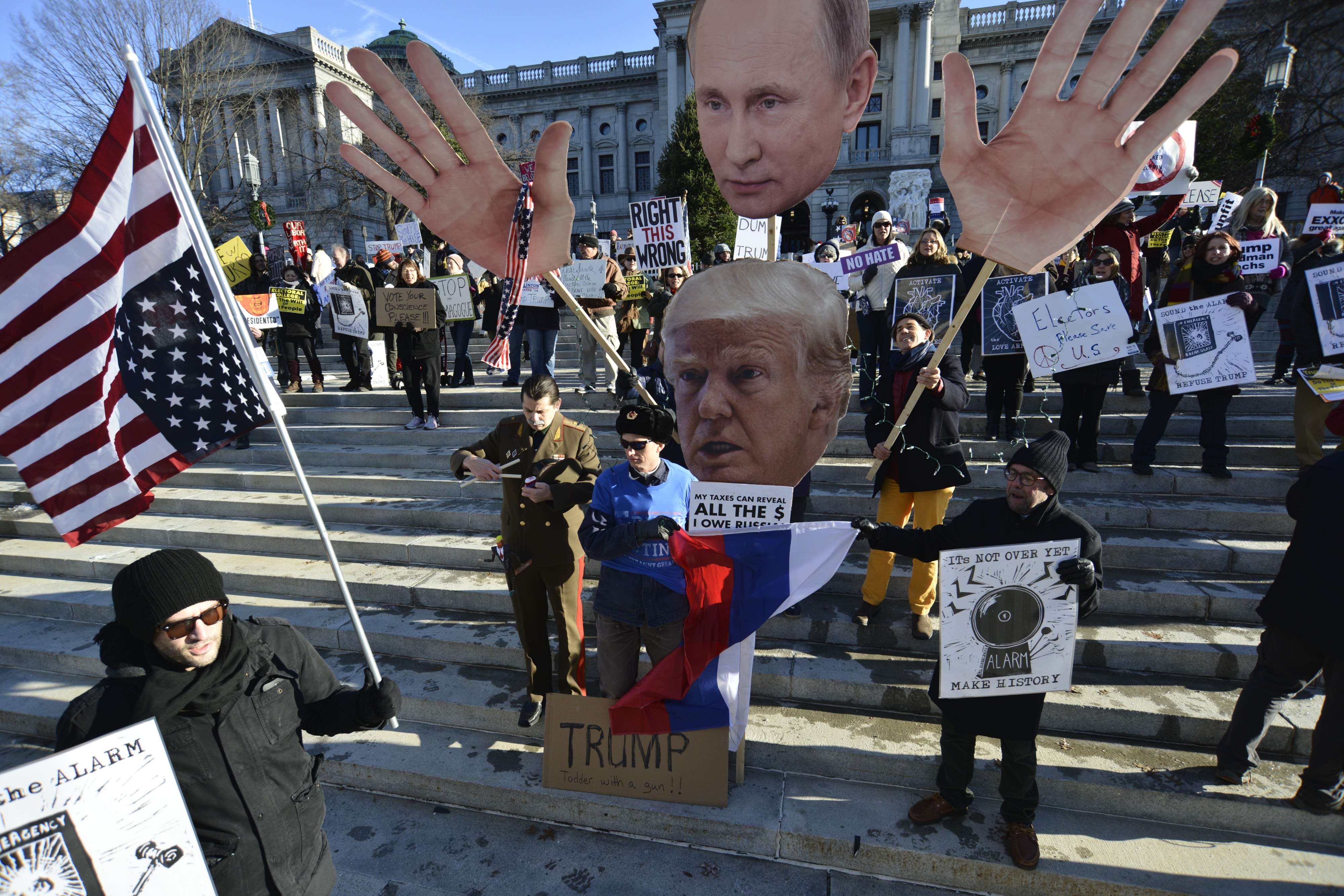It's Electoral College Day and Donald Trump is STILL Going to Be President
In the unlikely event of a large revolt of "faithless electors," Congress will still make Trump president.


It's finally here, the election day after election day, where 538 well-positioned Democratic and Republican party insiders are set to make Donald Trump's improbable election as President of the United States official.
Electors will cast their vote in each state's capitol, after which the governors and secretaries of state are expected to certify the vote and send them to Washington, DC, where a joint session of Congress will convene on January 6, 2017 to make the vote official.
A great many of Trump's opponents have pulled out all the stops to prevent him from taking office, wheeling out everything from misty-eyed B-list celebrity pitch videos, to promises to pay the fines imposed on rogue electors, and even street protests in states where Hillary Clinton is going to get every electoral vote.
A number of electors have claimed to have received attempted bribes, hate mail, and been inundated with email requests to vote for anyone but Trump. In Pennsylvania, all of the state's 20 electors will receive protection from a plainclothes state trooper.
For all the talk about "Hamilton Electors" — so named because of the founding father's warning in the Federalist Papers against the election of someone not "qualified" to be president or one improperly influenced by a foreign government — even in the highly unlikely case that the Electoral College denies Trump the requisite 270 votes he needs to win, all signs indicate that eventually the Republican-controlled Congress would just make Trump president anyway. Republican leadership may have been skeptical of Trump for much of 2015 and 2016, but after he received the party's official nomination at the Republican National Convention in Cleveland in July, pretty much all of the elected GOP has fallen into line.
While there have been a handful of electors who have indicated they won't vote for Trump despite being legally bound to do so (though no one has ever been prosecuted for violating these state laws), the massive revolt needed to present a speed-bump on Trump's road to the White House is still a longshot.
At the moment, only one elector has officially gone rogue — David Bright of Maine — and he has reportedly cast his vote for Bernie Sanders, denying a vote that would have gone to Hillary Clinton, not Donald Trump.
Read my report on "Hamilton Electors" here, and stay tuned later today for a full roundup of electoral votes.


Show Comments (108)